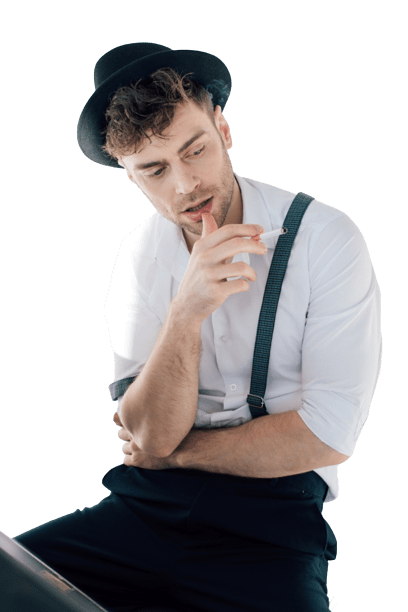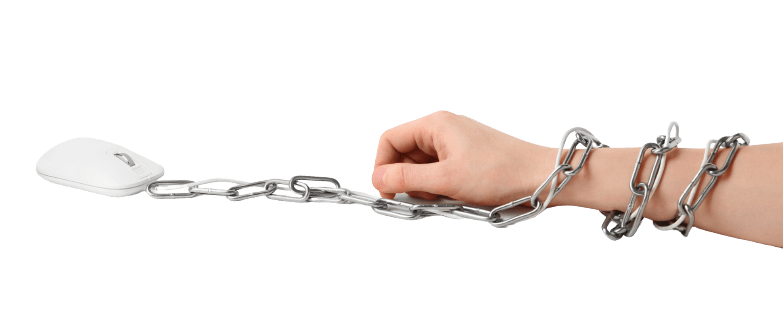Fighting addiction is an ongoing battle. It has its highs and lows, twists and turns, good days, and bad days, but ultimately, it can save your life.
At OVC, we offer specialized therapy for individuals struggling with behavioral addiction and substance abuse to regain control over their lives. Our experienced therapists build personalized treatments and use evidence-based approaches, such as CBT and DBT, to help you develop new coping skills and strategies for managing triggers and cravings.
Our therapy is designed to help achieve long-lasting recovery, and our team provides support every step of the way. We work in tandem with 12 step programs or as a standalone model.


Actions addictions are a type of addiction that involves engaging in certain activities that become compulsive and disrupt a person’s daily life. These activities can include but are not exclusive to, gambling, gaming, shopping, sex, Porn, internet use, and more. Although actions addictions are unrelated to substance use, they can still lead to very similar negative consequences, such as impaired functioning, relationship problems, financial difficulties, and emotional damage.
Recovering addicts often face various struggles, such as physical and psychological withdrawal symptoms, cravings and triggers, social isolation and stigma, financial and legal difficulties, and difficulty maintaining motivation and self-discipline. Also, they may struggle to rebuild relationships or find purpose and meaning without drugs or alcohol. More importantly, relapse is a common challenge in recovery, and recovering addicts must have ongoing support and treatment to stay sober.
CBT: This type of therapy helps individuals identify and change negative thoughts, emotions, and actions associated with addiction. CBT can also help develop coping skills and relapse prevention strategies.
Motivational Interviewing (MI): This approach focuses on increasing an individual’s motivation to change their behavior by exploring and resolving ambivalence and enhancing their self-efficacy.
Mindfulness-Based Interventions: These techniques, such as meditation and yoga, help individuals develop a non-judgmental awareness of their thoughts, feelings, and bodily sensations, and reduce stress and emotional reactivity.
Family therapy: Family therapy involves family members in the treatment process to address family dynamics, communication issues, and to provide support for the individual in recovery.
Support Groups: Self-help support groups, such as Alcoholics Anonymous (AA) or Gamblers Anonymous (GA), provide social support, accountability, and peer encouragement for individuals in recovery.
Pharmacotherapy: Medications may be used to manage withdrawal symptoms, reduce cravings, and stabilize mood for some behavioral addictions, such as gambling or internet addiction.

My main contact has been with Amanda M. and she has been amazing. She spent a half an hour going over options for different counselors and explaining the process. It was awesome to have someone willing to put in the time and effort to make things easier.
I have worked with Zev Berkowitz for the past 2 years and would highly recommend. Zev is inviting and easy to talk to but challenges you to work on yourself and the issues that you may be facing. We worked on couple’s therapy first and now i continue to use Zev as a personal therapist to work on my personal challenges. He is also very flexible with his schedule, and always available to talk or even text.
Working with Amanda has made finding a therapist so seamless! She has made the onboarding process so easy and is extremely friendly, knowledgeable, and helpful. She is also very responsive and gets back to you right away. This whole process can be daunting but with Amanda’s help it isn’t at all! Definitely recommend working with this practice as they have people like Amanda who are truly trying to help others.
Tara is a Gift from heaven! She is incredibly knowledgeable with regards to understanding and distinguishing a patient’s requirements. Since she has such a sympathetic and true interest in you, SHE Truly Tunes in! She goes past what common specialists or clinicians do, and consistently makes an opportunity to really focus on your needs.
I find this to be a better alternative to the popular virtual services out there. They take individual patient care seriously and they work with a lot of insurance.
I had frequent panic and anxiety attacks, which I didn’t believe would go away. However, I had no idea that Gabrielle’s six-week session would be so beneficial to me. I am grateful for his assistance and time, which really helped me with my anxiety problems.
I am having such a good experience with my therapist here. Much better than when I have tried therapy in the past. I have a really good therapist who has off the bat used an evidence based approach to help me dive deep into healing.
Best Online Therapy in New Jersey. They are VERY well organized, making the whole process even easier. WORTHY OF YOUR SUPPORT!!
